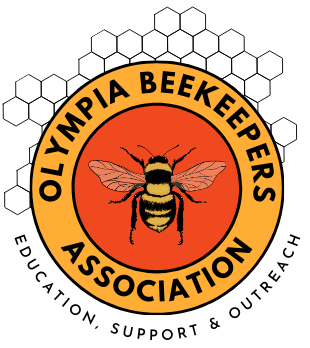Thurston County Fair – Bee Booth Volunteering with OBA is a rewarding experience – getting to share information about honeybees, honey-tasting and seeing eyes light up at the sight of our observation hive is just plain fun! Build professional and personal skills and gain confidence in your beekeeping practices at the same time! Even if (more…)
In spring of 2016, two honey bee hives were installed on the grounds of the Governor’s mansion in Olympia. Both hives began collecting pollen and nectar from local blossoms, carrying it back to their new “homes.” As the Olympia Beekeepers Association project team continued to check on their progress, one of the hives demonstrated signs (more…)
To avoid colony loss this winter you MUST act now! Our August Program featured the dynamic honey bee expert and Green River College Professor Danny Najera sharing his latest knowledge and information. Download: The Mite Busters Handout (PDF 10.5MB) More links for Danny’s work; See GRCC honeybees on Facebook here! Make donations to his honeybee (more…)
Two hives were placed on the front lawn of the Governor’s Executive Residence at the Washington State Capitol and honey bees installed on April 20, 2016. The project, a collaboration between the Olympia Beekeepers Association and the Washington Department of Enterprise Services will help raise public awareness about the decline of bee populations, our dependence (more…)
Installation of stand and hive boxes was completed today by the OBA’s Capitol Bee Team. The new buzzing residents at the Governor’s Mansion will officially arrive on April 20th. The OBA is thrilled to be collaborating with Governor and Mrs. Inslee and the Department of Enterprise Services at the Capitol on this project.
